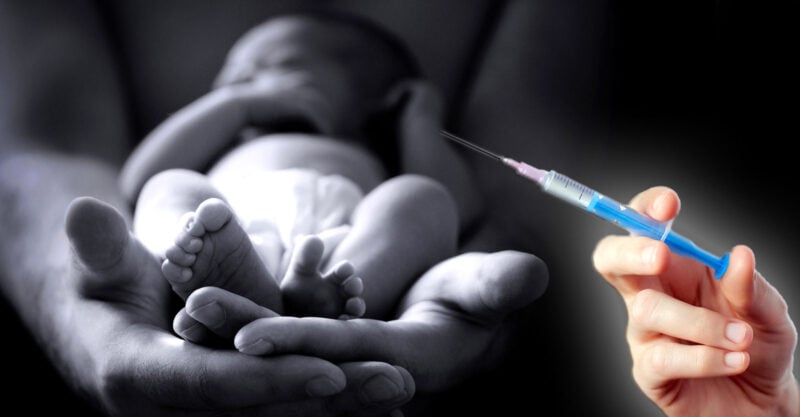by Michael Nevradakis, Ph.D., Childrens Health Defense:

Advisors to the U.S. Food and Drug Administration on Thursday recommended approval of AstraZeneca’s new monoclonal antibody, which the drugmaker said is designed to protect infants and toddlers up to age 2 from respiratory syncytial virus, but medical experts interviewed by The Defender called the move “reckless” and “preposterous.”
TRUTH LIVES on at https://sgtreport.tv/
The drug, nirsevimab, would be delivered to newborns in a single shot at birth or “just before the start of a baby’s first RSV season, or as a larger dose in a second RSV season in children who are highly vulnerable,” CNN reported.
Members of the independent committee, which includes several pediatricians, “were enthusiastic about the potential” of the antibody, STAT reported, as was Thomas Triomphe, executive vice president of vaccines at Sanofi, which will market the drug in the U.S.
In a statement, Triomphe said:
“Most babies hospitalized with RSV are born at term and healthy, which is why interventions specifically designed to protect all infants are likely to result in the greatest impact.
“We are encouraged by the advisory committee’s positive vote based on the compelling clinical development program supporting nirsevimab and its breakthrough potential to reduce the magnitude of annual RSV burden.”
But medical experts interviewed by The Defender raised a number of concerns, including what they said was inadequate safety testing.
“It’s preposterous to give this drug prophylactically, especially without adequate safety testing,” said Brian Hooker, Ph.D., P.E., senior director of science and research for Children’s Health Defense (CHD).
AstraZeneca reported only 48% efficacy for the drug. And Hooker noted that the “circulating half-life of the antibodies is probably less than one month so the protection would be minimal at best.”
Hooker also commented on the fact that 12 infant deaths were recorded during the clinical trial, which the FDA committee claimed were “unrelated” to the antibody:
“It appears that this vote was meant to bolster uptake and popularity of the RSV vaccines that are now approved for maternal use. The very low rate of effectiveness for such a therapy is troubling as the conservative estimate is below 50%, which is usually a hard metric for drug approval.
“Also, it seems odd that four infants in the trial would die of cardiac arrest — with no information given, it leaves one to wonder why these children would die in such a way. Also, there should be further investigation into the two SIDS [sudden infant death syndrome] deaths that occurred during the trial.”
Dr. Meryl Nass, an internist, biological warfare epidemiologist and member of CHD’s scientific advisory committee, told The Defender,“It is reckless in the extreme to inject very young babies with an inadequately tested monoclonal antibody drug to prevent a condition that for most of them will be no more than a cold.”
Cardiologist Dr. Peter McCullough told The Defender that while monoclonal antibodies are “generally safe” for children, he questioned the benefit of such a treatment for what he called a “mild” infection. He said:
“Monoclonal antibodies are generally safe in children and adults; however, I am concerned broad infant population uptake may disrupt normal thymus and immune system development that easily handle infections such as RSV, influenza, rhinovirus, adenovirus and SARS-CoV-2.
“RSV is a characteristically mild infantile infection easily resolved with conventional nebulizers. I believe nirsevimab would not be clinical-indicated for all infants and likely would be utilized in high-risk babies with congenital heart or lung disease, such as cystic fibrosis, or those with prior thoracotomies for heart surgery, where respiratory mechanics would be compromised.”
The FDA committee’s positive recommendation for nirsevimab, also known as Beyfortus, comes just weeks after the agency approved GlaxoSmithKline Biologicals’ Arexvy, the first-ever RSV vaccine for older adults, and recommended Abrysvo, Pfizer’s RSV vaccine for pregnant women.
According to CNBC, the FDA is expected to make a final decision on nirsevimab in the third quarter of this year.
Nass told The Defender that while the FDA is not obligated to follow the panel’s advice, “it almost always does so.”
Read More @ ChildrensHealthDefense.org



